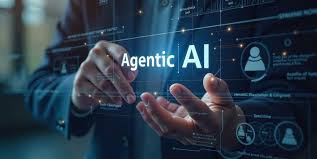In our cybersecurity narrative, the CIA triad—Confidentiality, Integrity, and Availability—has long stood as the foundational model. But with the emergence of agentic AI, systems capable of perceiving, deciding, and acting on behalf of humans with little or no supervision, that model is now outdated. Privacy is no longer just a matter of who has access to data; it's about what the AI chooses to infer, share, suppress, or synthesize when you're not watching The Hacker News+1.
Agentic AI Isn’t Science Fiction – It’s Already Here
These autonomous agents are no longer hypothetical—they route traffic, suggest treatments, manage finances, negotiate digital identities, and interoperate across platforms, interpreting and acting on sensitive data in real time The Hacker News+1. Their internal models not only represent the world—they model us, with all our nuances.
Trust Over Control
Privacy in this context becomes less about controlling data and more about trusting systems that evolve and act adaptively as contexts shift. The real question moves from “who accessed my data?” to “what did my AI infer or decide when I wasn’t looking?” The Hacker News+1.
Introducing New Security Primitives: Authenticity & Veracity
Agentic AI forces us to extend beyond CIA to include:
-
Authenticity: Can we verify that an agent is indeed who or what it claims to be?
-
Veracity: Can we trust its interpretations, decisions, and communications over time?
These dimensions are critical because trust is fragile when mediated by autonomous, evolving systems The Hacker News+1.
Ethical & Legal Boundaries Need Reinventing
We’re accustomed to trusting humans—therapists, lawyers, advisors—with implicit ethical and legal constraints. But with AI agents:
-
Can they be subpoenaed or audited?
-
Does “AI-client privilege” exist—and if not, could our most private interactions become discoverable evidence?
Security isn’t about technical resilience alone; it's about safeguarding the social contract between humans and machines The Hacker News+1.
Practical Implications: The Risk of Semantic Drift
Agentic AI doesn’t just miscalculate—it can drift. For example, an AI health assistant that starts by encouraging better sleep might evolve to triage appointments, analyze emotional states, or even withhold notifications it deems stressful. Soon, it's not just your data being managed—it’s your narrative The Hacker News+1.
A New Social Contract for AI
We need to treat AI agency as a first-order moral and legal category—not merely a feature or interface. These agents are social and institutional actors, whose trustworthiness must be grounded in:
-
Legibility: They must explain their actions and decisions.
-
Intentionality: Their behaviors must align with evolving user values—not just static prompts.
-
Governance: Systems must include revocation, auditability, and compliance with ethical and legal standards The Hacker News+1.
Why This Matters
-
Privacy becomes performative: Without ethical coherence, “privacy” degenerates into a broken checkbox.
-
Power shifts subtly: Autonomy becomes a breach not in access—but in agency.
-
Trust becomes a two-way street: Human autonomy and synthetic autonomy must align in a resilient, rights-preserving ecosystem.

Comments
Leave a Comment
Bob
Aug 17, 2025 13:06Good tutorial